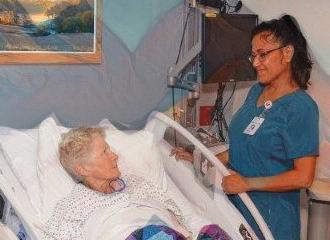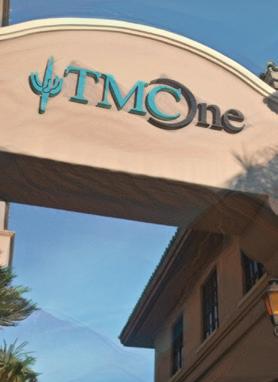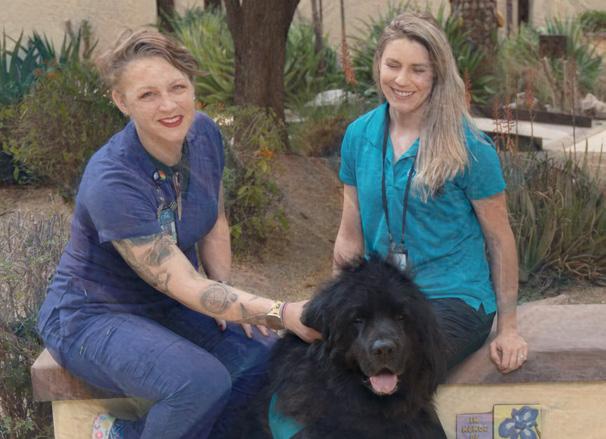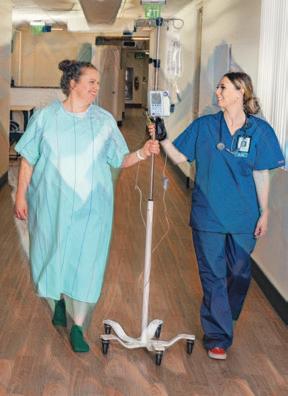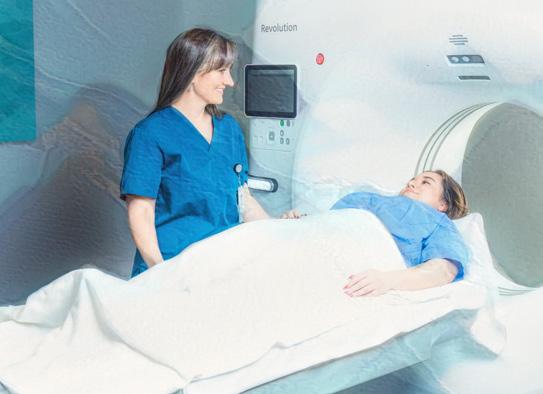








































To the communities we serve,
Tucson has been my home for 20 years, since moving here to join Tucson Medical Center, and I have had the honor to lead TMC—now TMC Health—since 2007.
So much has changed—TMC is no longer just a hospital. Our physician group has grown from a handful of providers to more than 160. Benson Hospital and Northern Cochise Community Hospital joined the TMC Health family, and in April 2024 we opened Tucson Medical Center Rincon.
Together, we have faced challenging times with the Great Recession and the COVID-19 pandemic, and great opportunities such as expanding Medicaid in our state and investing in important community projects including the Connie Hillman House and Tucson Collaborative Community Care program.
What’s stayed the same is what I believe is TMC Health’s secret sauce—our focus on the communities we serve and the support we receive in return. Within these pages, you will read about the new TMC Rincon, a gift to endow our Healing Art Program, the new Cochise County Mobile MRI and so much more.
The theme for this report is the Art of Health Care. And, while medical care is certainly science-based, there is an art to it as well. The art of ...
• nurturing a culture of compassion, caring, creativity and passion of people working together to address critical community health challenges
• the careful maintenance of our facilities and grounds to create a healing environment for patients, visitors and staff
• one caregiver—a nurse, a doctor, a respiratory therapist—caring for one patient
It’s been my honor and privilege to steward this community treasure for a small part of its 80 year history. As we turn the page on this chapter, I know it’s in good hands and poised to serve the community for many years to come.
Judy Rich
TMC Health CEO
Retired May 2024


Longtime leader and community icon Judy Rich, MSN, RN, announced her retirement in 2023, and left her position as TMC Health president and CEO in the spring of 2024.
Rich held roles from staff nurse to CEO and started her professional career at Thomas Jefferson Hospital in Philadelphia.
She was instrumental in steering TMC HealthCare through a financial turnaround when she assumed the helm as president and CEO in 2007.
Recognizing that health care is local, Rich worked with her executive team to take a grassroots approach to health care reform, implementing programs to increase access to preventive health care options and expand affordable health care opportunities throughout Southern Arizona.
With the opening of the TMC Orthopaedic and Surgical Tower in 2013, she not only positioned the organization for growth in the 21st century, but helped employ hundreds in the community during the dark days of the Great Recession.
Rich and her team helped steer the organization and the community through the COVID-19 pandemic. In 2020 Rich was named Greater Tucson Leadership Woman of the Year for:
her significant contribution of time, energy and spirit in fields outside her professional life, without regard to personal gain; whose recent contributions to the community have made a significant, positive impact on the quality of life for all residents; who has demonstrated excellence in leadership; and who is a source of positive influence and inspiration for others.
In an industry that has seen significant consolidation, she helped the organization retain local control as it has grown from TMC HealthCare, a hospital with a few employed physicians, to TMC Health, an integrated health care delivery system with strategic development initiatives to support longterm growth and stability.
Rich served on the boards of the American Hospital Association, the Arizona Hospital and Healthcare Association, Vizient West Coast and the Southern Arizona Leadership Council. She also served on the board of the Southern Arizona Hospital Alliance and two regional accountable care organizations. She was chair of the 2011-2012 United Way Campaign for Tucson and Southern Arizona and has previously served on the boards of VHA National, EMERGE! Center Against Domestic Abuse and the Executive Advisory Council of UnitedHealthcare. Additionally, Rich was a member of the Chairman’s Circle of Sun Corridor Inc., which coordinates economic development activities and programs in Southern Arizona.

Tucson Medical Center is committed to providing not only exceptional health care but also a compassionate and patient-centered experience. This year, as part of the continued goals of responsiveness and wanting to create an environment patients would recommend to their friends and family, TMC implemented a new initiative designed to strengthen positive experiences: leader rounding.
Using an app, leader rounding allows for real-time gathering of information in the hospital. The app prompts a series of questions to ask patients, from finding out whether the patient understands any medication they’re on to checking on the trash being emptied. If the patient has any concerns, that information can be relayed to patient services immediately to be addressed. Even if patients are happy with their stay and there are no outstanding issues, patients hopefully feel they are a priority to the hospital staff.
“There is evidence that leader visibility improves many outcomes, including patient experience,” says Stela Record, director, TMC Patient Experience. “We wanted to make a positive difference for our patients and staff.”
Throughout 2023, our leaders have been actively rounding on patients, connecting with them directly and ensuring their needs are met. The results have been impressive:
• 40% of inpatients were visited by a leader in 2023, a remarkable achievement for our first year.
• Patient experience scores for “likely to recommend” and “staff responsiveness” reached our goals, showing that leader rounding is making a positive impact.
• Leaders received frequent praise from patients about specific team members, which leaders share to boost morale and recognition. Notably, patients who interacted with leaders were four times more likely to recommend our hospital to others.
The program extends beyond statistics. Record recounts a particular heartwarming example: “One leader learned during her round that a patient was celebrating a special anniversary. Our team rallied and arranged cake, flowers and a card to make their day brighter, even while hospitalized.” Leader rounding also fosters collaboration. Record describes another instance: “Two nursing directors rounding together identified an urgent
situation where more staff was needed. They worked as a team to ensure all patients received the care they required.”
While initial visits have been impactful, 2024 will focus on refining leader rounding skills. Nurse leaders are participating in “skills labs” designed to hone their rounding techniques. This program will soon expand to include ancillary leaders who also play vital roles in patient care.
Even in its early stages, leader rounding has been a powerful tool that allows us to hear from our patients directly, recognize our amazing staff, and deliver an exceptional health care experience.

Drive around Tucson a little and you’ll see some empty buildings that used to be pharmacies. Even if a pharmacy is still open for business, the hours aren’t always super convenient. They might close early or not be open on weekends. Let’s say you found a pharmacy, got there when it was open—will the pharmacist have time to answer questions? Maybe not.
Opening in September 2023 and located at 5310 E. Grant Road across from Tucson Medical Center’s campus, TMC Pharmacy started as a former bank branch. With some renovations and a vision for the future, it became another facet of how TMC Health fulfills its mission of providing exceptional health care with compassion. Plus, there’s a drive-thru.
“We recognized that the community wasn’t being adequately cared for with their existing pharmacy options,” said Claudia L. Koreny, PharmD, director of Pharmacy Services. “It’s important to be able to get your prescriptions easily, but it’s equally important to have the opportunity to ask questions and understand what you’re taking and why.”
The pharmacy was a success immediately, with the number of prescriptions going up 17% in 2023 over 2022, as well as a 54% increase in revenue. An extensive marketing campaign was tied to the pharmacy opening to ensure that current patients, as well as members of the community, were aware of the new location.
In 2024, TMC Pharmacy plans to expand services further, including offering diabetes management services at the location, as well as vaccine administration.
“We want to use this physical location, as well as our other resources, to make sure Tucsonans have the medicine they need,” said Koreny. “This is just another way to make sure the patient comes first.”

Tucson Medical Center Security Services staff come to work every day with the goal to create a safe environment for patients, staff and visitors, as well as to protect hospital assets.
“We have the potential for people to be here in very stressful situations, which can create unpredictable situations,” said William Fleming, director of Security and Transportation. “It’s kind of like a little city here, and we deal with the whole magnitude of things you would in a small town. You have individuals from every walk of life that are here needing care or working or visiting, so with that comes some risks that can be challenging.”
Thanks to the proactive approach from Security Services, TMC has seen a decrease in such incidents over the last year. Overall, criminal activity saw a 16% decrease and workplace violence decreased by 13%.
Fleming credits much of this success to being more proactive in patrolling and assessing each area to ensure the proper security measures are in place. Community collaboration also plays a hand in decreasing nefarious activities. Fleming meets monthly with hospital security leadership from across Southern Arizona, Tucson Police, Border Patrol, FBI and Arizona Corrections to discuss challenges they are seeing, so they are aware of the current risks the community is facing.
“It has helped us pull together our resources to identify threats or risks,” he said. “For example, we had individuals stealing catalytic converters from cars at TMC and Banner University, but we were able to put together our information and resources and work with the Tucson Police to close down the ring. There has also been a big push to train and educate staff on escalating behavior as well as de-escalating situations by listening, trying to understand and being empathetic.”
“It’s really about how you show respect to individuals, making sure we are really listening and seeking to understand their perspective on what’s going on,” Fleming said. “We like to call it ‘doing our best to be the best listeners.’ Really the biggest thing we do is make sure we are being empathetic to everyone that comes here, regardless of their situation and understanding that they are individuals going through either the best or worst day of their life, and helping them navigate through those challenges.”
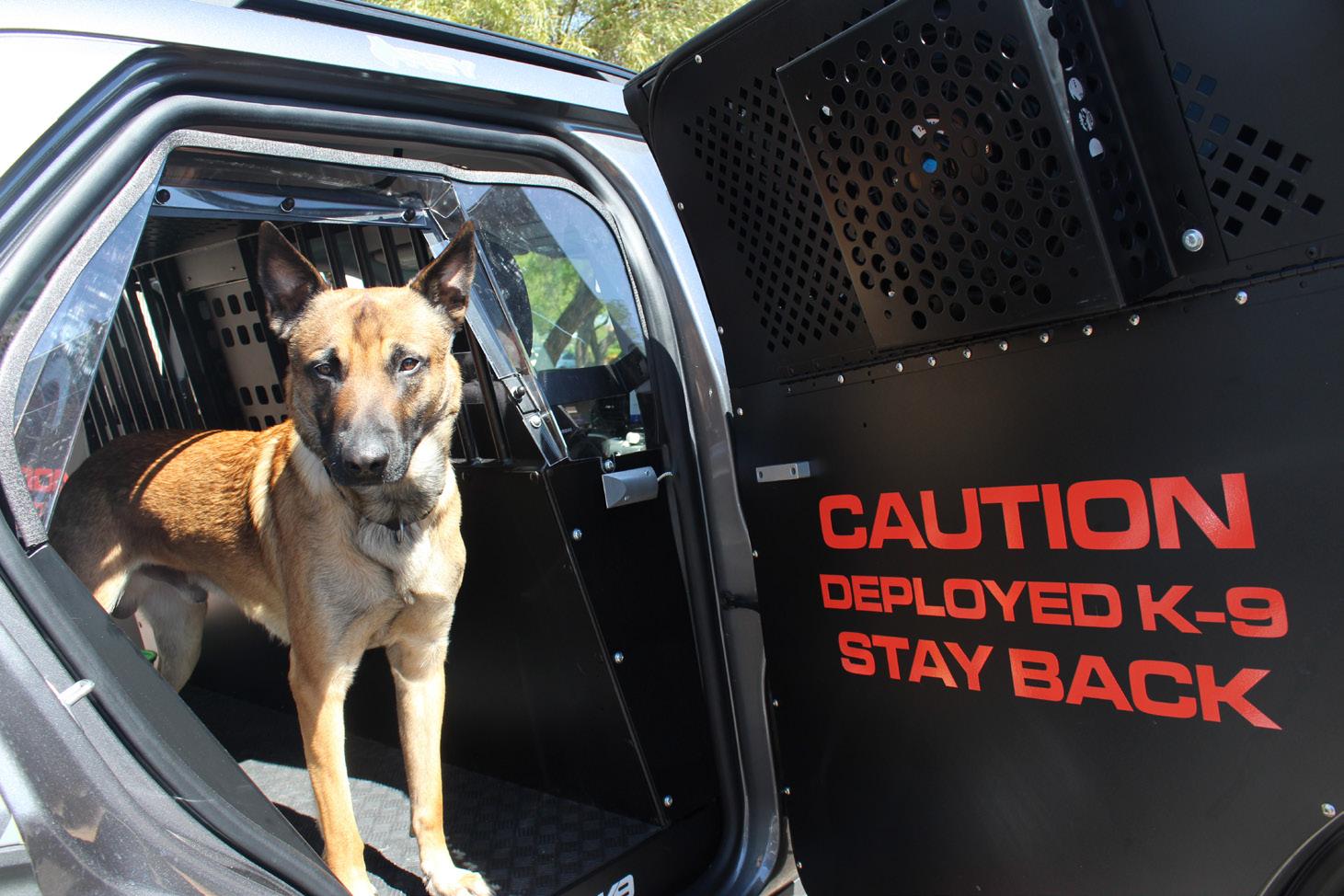


Since its inception in 1944, TMC Health has grown from a single hospital to a comprehensive healthcare network. TMCOne, the primary and specialty provider network of TMC Health, has expanded to over 130 full-time providers, maintaining a focus on high-quality, patient-centered care. In 2023, TMCOne saw 256,636 patient appointments, reflecting the community’s trust in their services.
With 25 conveniently located clinics offering primary care, urgent care, and specialty services, TMCOne ensures accessible care throughout Tucson. The network continually evolves to meet changing patient needs, adding neurosurgery, general surgery, and orthopedic providers in 2023. In 2024, a new clinic will open at The Bridges near Kino Parkway and I-10, further expanding access to care.
Technology plays a crucial role in TMCOne’s strategy. The virtual care program, TMCOne Today, offers convenient remote consultations, often on
the same day. The introduction of hello.tmcaz.com has simplified the process of finding providers, making appointments, and accessing medical records.
Substantial investments in technology and infrastructure have enhanced the patient experience and operational efficiency. The adoption of advanced tools like the Epic EMR and Microsoft DAX AI has empowered care teams to provide timely, coordinated care with improved provider satisfaction.
TMCOne’s growth is driven by a deep commitment to the community, a talented workforce, and a focus on delivering high-quality, cost-effective care. As TMCOne continues to develop, it remains dedicated to investing in innovative solutions, expanding services, and strengthening partnerships to improve the health and well-being of the Tucson community.



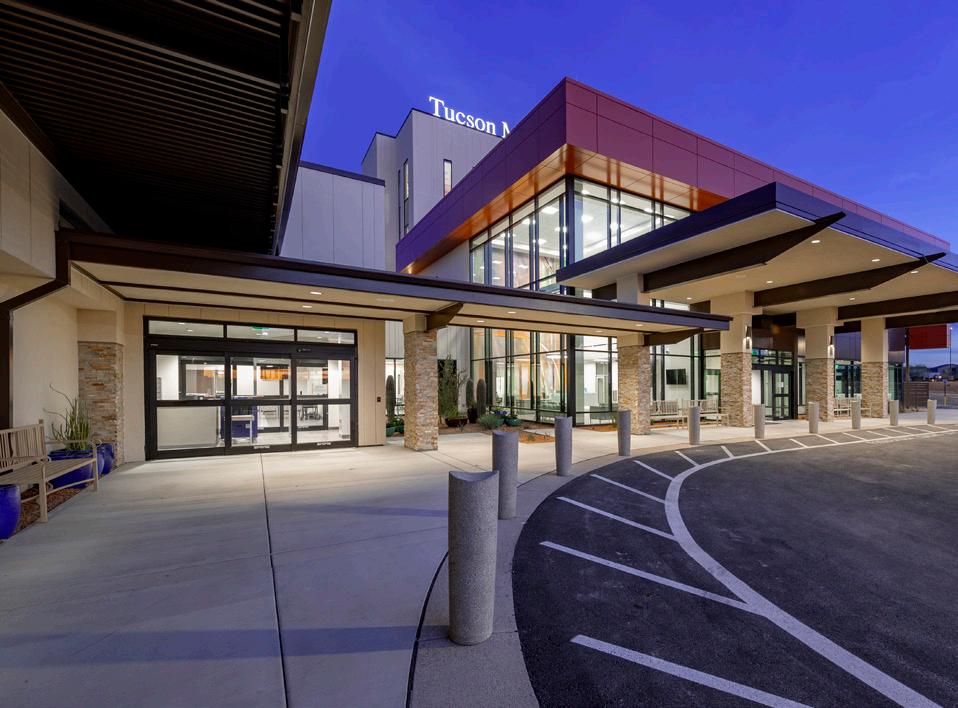
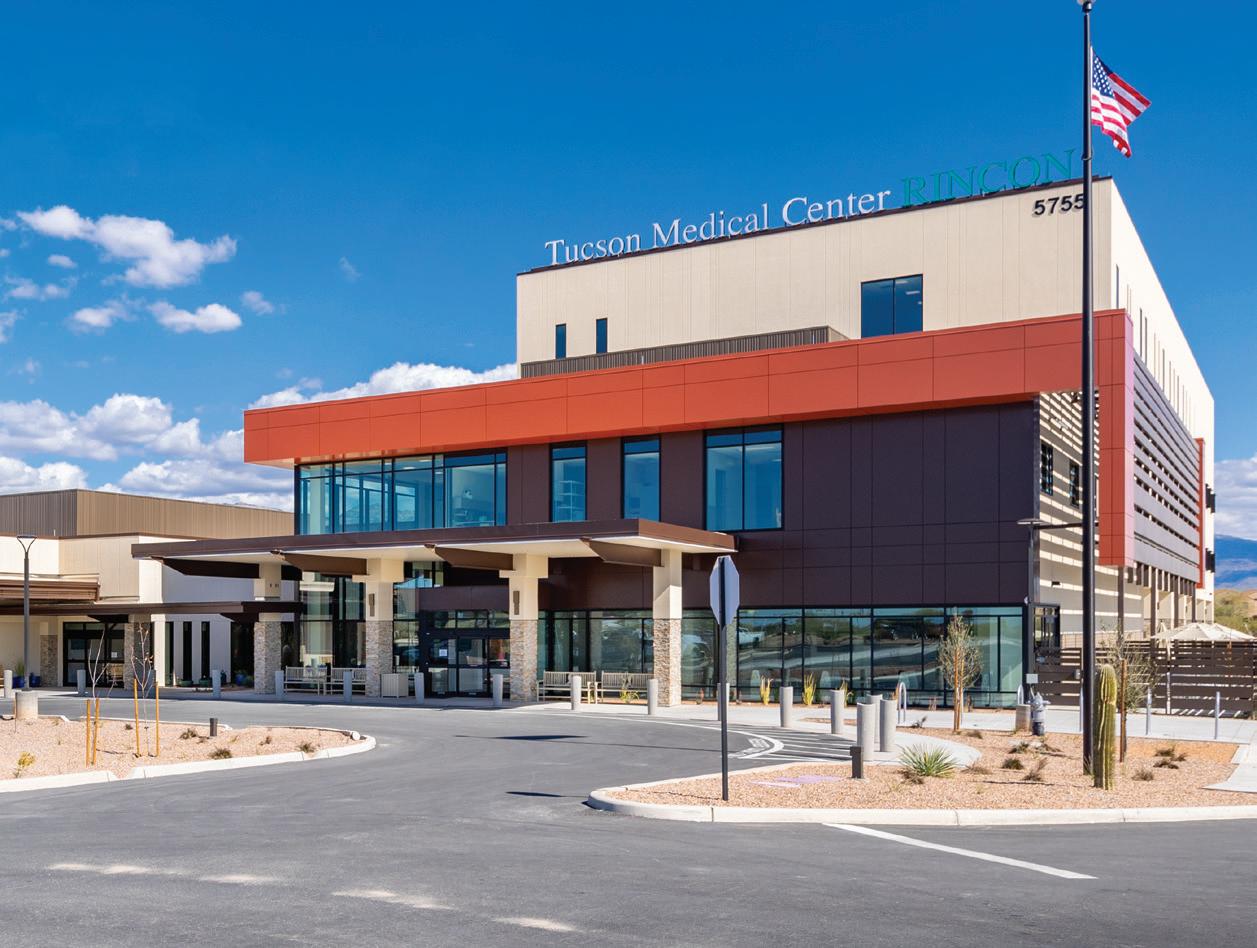

The story of Tucson Medical Center Rincon began in 2005, with the purchase of land at the corner of Houghton and Drexel. The challenges of the Great Recession and other issues of timing delayed construction of medical facilities, but in 2017, the first stage of the Rincon Health Campus emerged with a medical office building. The Rincon Surgery Center followed in 2023 and at 9 a.m. on April 4, 2024, TMC Rincon, a 135,000-square-foot hospital facility with 140 employees, opened to the public. Serving the growing eastside of metro Tucson as well as the community of Vail, TMC Rincon will continue to expand to serve demand, including the addition of a maternity unit, scheduled to open later this year.



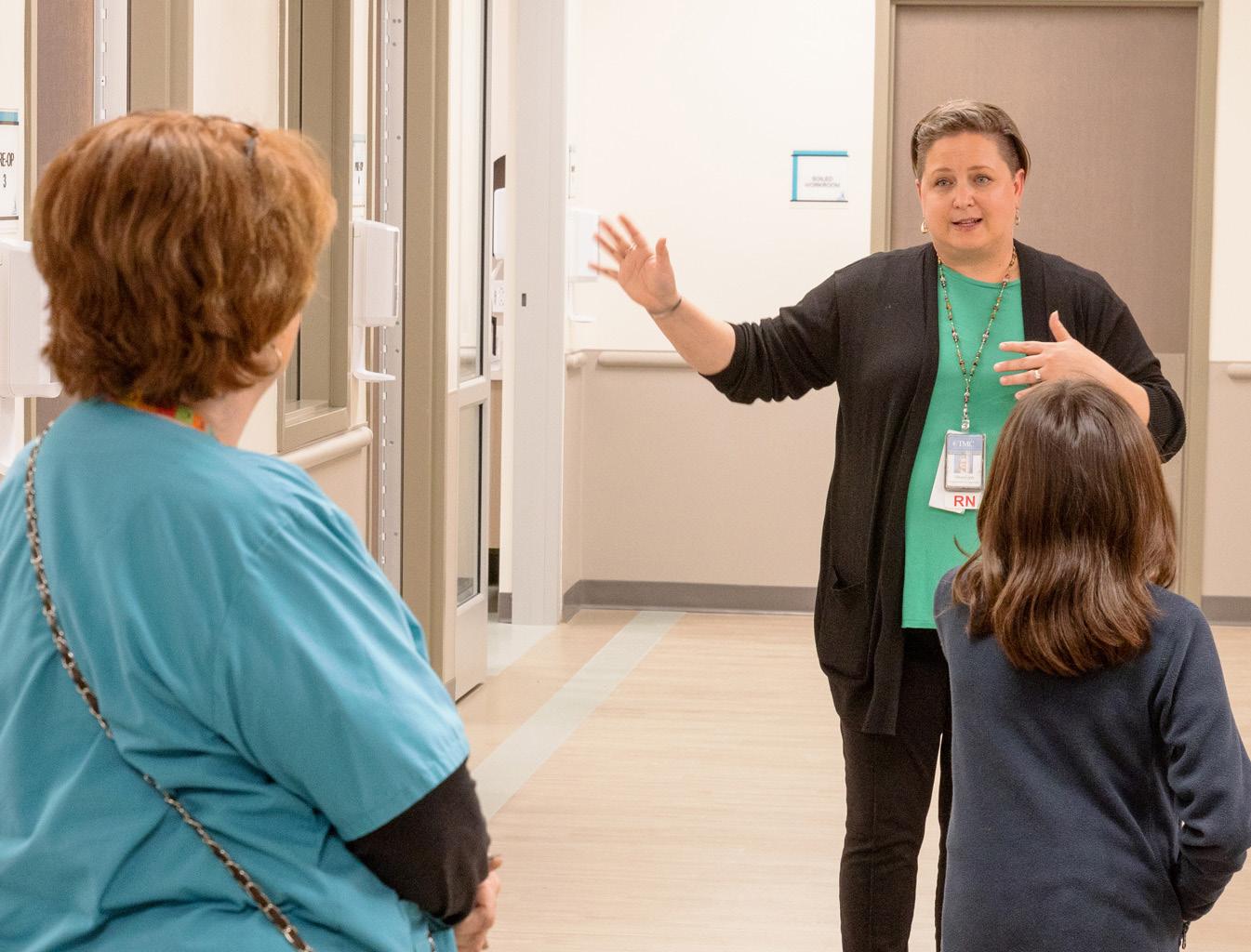



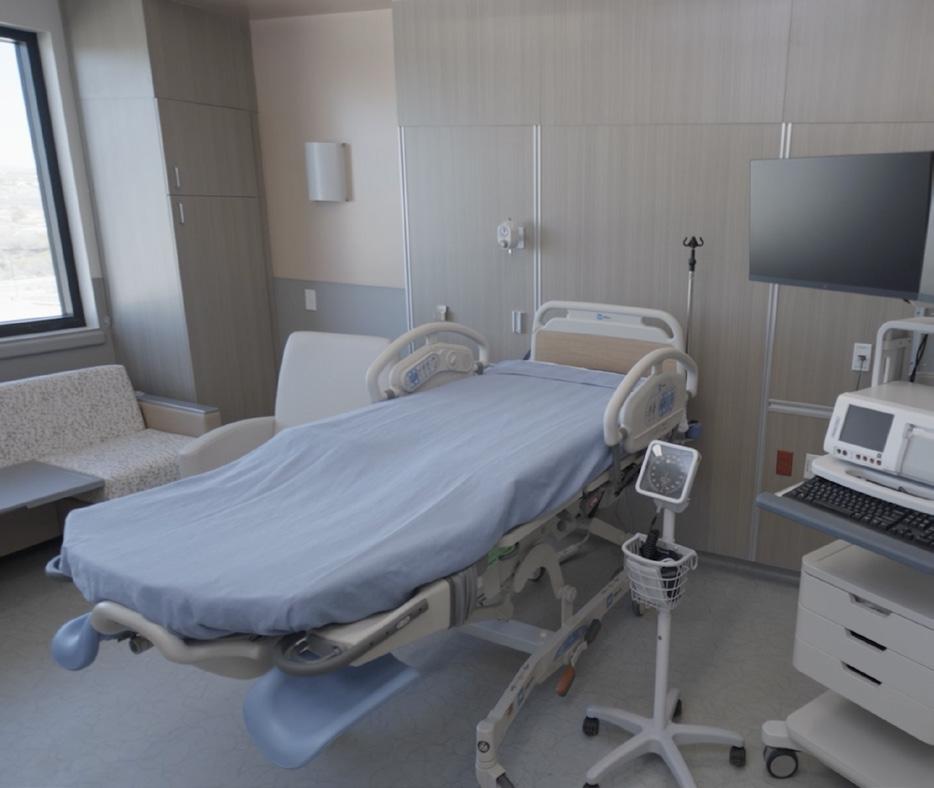





For the last 35 years, Tucson Medical Center has offered older adults more and more opportunities to socialize, learn and just enjoy good company.
TMC for Seniors, as it is called today, started as a mini health fair in the hospital’s Alamo Building.
At that time, the focus was on free health tests including blood pressure screenings, stress tests and checks on pulmonary function. The objective was to strengthen relationships between TMC, its senior patients and their physicians—and health education was the main focus.
By 1989, the program opened to the public for anyone 50 or older, and having a participating physician was no longer required.
Today it offers so much more.
Seniors still find opportunities to stay fit and learn about wellness, but there are also art classes and a book club. Additionally, through the programming, high school students from the Gregory School pair up with seniors to help them with technology or enjoy doing theater and storytelling together.
Jan Sturges was the first director of the program 35 years ago and she said the goal, at that time, was to help people “think of TMC as more than just a place to come when they’re sick.”
TMC Senior Services Director Maya Luria said, “TMC for Seniors has clearly achieved that. It has clearly evolved over time.”
A two-month calendar details all the offerings now. There’s a walking club, chair yoga and tai chi, along with a variety of health and wellness classes with in-person and online viewing options. Participants might learn about stroke prevention or participate in a virtual dementia experience workshop to experience what it might be like to have dementia. The objective is to help people better understand the needs and behaviors of loved ones with memory-related challenges.
There’s also The Inside Story, which offers behind-the-scenes information about a number of topics. Bob Linn, an enthusiastic participant with TMC for Seniors programming and The Inside Story, said they have visited the Reid Park Zoo to learn about animal care and training. Separately, he said, they learned about the training of K-9s for the Tucson Police Department.
Linn, 91, has been involved with TMC for Seniors for a few years now and with the TMC Auxiliary for seven years. He is both a volunteer and a participant in many of the programs TMC offers.
One of his volunteer jobs is to check donated electrical appliances to see if they work before being put up for sale at the Teal Saguaro, 2260 N. Rosemont Blvd., a thrift shop that benefits the TMC Auxiliary.
Linn and his wife, Dee, moved to sunny Tucson from snowy New York in 1980, he said. The couple have been married for 70 years.
“I was working for IBM at the time and got transferred out here,” he said. “I was lucky.”
Dee also volunteers at the Teal Saguaro.
“She loves it,” he said. “She works with a great group there.”
Linn said in addition to the friendships he’s made through the classes, he also thoroughly enjoys volunteering to help Luria and Jennifer Burros, TMC senior services coordinator.
“They are a delight to work for,” he said, explaining that he helps them check people in for classes for two shifts each week. “There’s so much stuff going on there. It keeps me out of trouble.”


When Miles, a patient at TMC for Children, came into his room, he was surprised to see a new cozy green comforter, throw pillows, Minecraftthemed sheets and decorations, and a slew of new toys.
Some TMC pediatric patients were treated to a special surprise room makeover by Once Upon a Room, a nonprofit organization that decorates pediatric patient rooms with items they can take home with them when they leave. The organization works closely with the Child Life team to determine what types of items the child likes and needs. In Miles’ case, it was all about Minecraft.
The organization was inspired by Josie Hull and her sister Teresa, conjoined twins who were separated at 1 year old. Josie has continued to be in and out of the hospital throughout her life. During her stays, her mother would bring items from home to decorate her room, and it lifted her spirits so much that she wanted to share that joy with other kids in the hospital.
Now, Once Upon a Room operates in 35 hospitals across the United States. TMC is the first Tucson hospital to get these room makeovers from the organization. The Tucson chapter includes University of Arizona student volunteers.
“I think this brings another level of healing to our patients,” said Jenna Beatty, child life specialist. “They can feel comfortable. They can be surrounded by the things they like and enjoy. Even just changing their room a little bit makes for a more healing and comfortable place.”


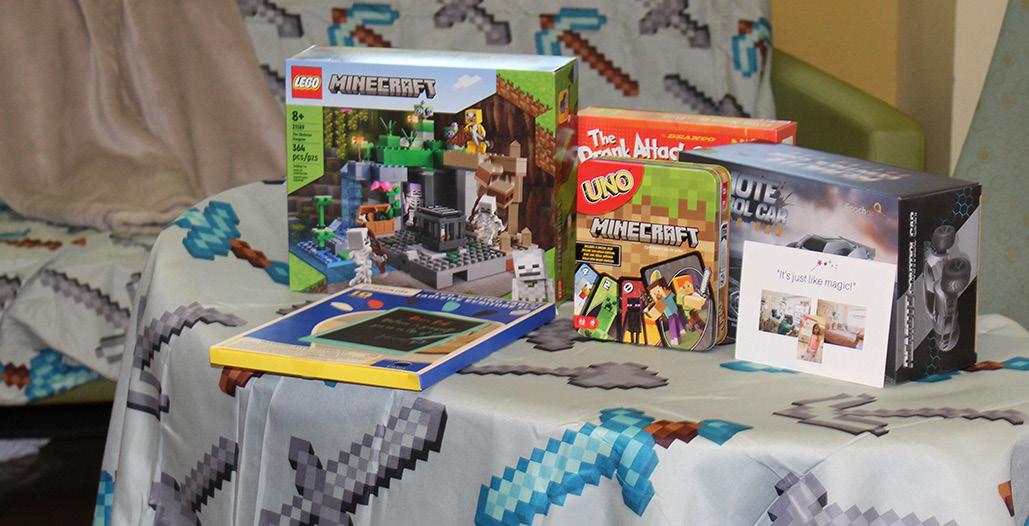

Cochise County’s critical-access hospitals have united to bolster access to magnetic resonance imaging (MRI) for residents. With substantial support from the 2023 federal budget, access to this vital diagnostic service is being amplified in Benson, Willcox, Bisbee, Douglas and surrounding areas. The recently acquired Cochise County Mobile MRI began patient services in 2024.
Gary Kartchner, CEO, Benson Hospital, emphasized the importance of expanding MRI services to ensure residents have timely access to essential diagnostic imaging, enabling early detection and treatment of various medical conditions. He highlighted that without local access to MRI scans, patients may encounter significant delays and obstacles in obtaining health care services, potentially resulting in worsened health outcomes. Kartchner credited Senators Mark Kelly and Kyrsten Sinema for securing funding that brings health care closer to the residents of Cochise County, underscoring the impact of such support on improving community health and well-being.
“Doubling available MRI appointments in our rural communities reduces the need for residents to travel long distances to urban centers for medical care, which can be costly, time-consuming and burdensome, particularly

for patients with limited mobility or financial resources. By bringing MRI technology closer to home, our providers can better meet the diverse needs of our populations, ultimately improving overall health care of the patients we serve,” said Mo Sheldon, CEO, Northern Cochise Community Hospital.
Robert Seamon, CEO, Copper Queen Community Hospital, noted, “This collaboration provides advanced MRI technology to multiple Cochise County communities, ensuring patients can access top-quality imaging services within their own neighborhoods.” Purchased from GE HealthCare, the SIGNA Voyager 1.5T MRI scanner is designed to help maximize patient comfort. It is equipped with AIR Recon DL, which utilizes deep learning algorithms to significantly improve the quality and speed of MRI scans. AIR Recon DL represents a powerful integration of AI and MRI technology, offering potential advancements in medical imaging for accurate diagnoses and improved patient outcomes.

Each year, residents of Willcox and its surrounding areas show up for a night of bidding and dancing all in support of Northern Cochise Community Hospital. While the silent auction is always popular at Boots and Bling, the live auction steals the show.
Monies raised each September fund projects important to patient care, safety and facility improvements, said Mo Sheldon, CEO, NCCH. In 2023, the event raised $118,000 and has raised nearly $700,000 since its inaugural event in 2012.
Funds from the 2022 event along with a donation by the Safford Order of the Eastern Star allowed NCCH to install Pyxis, a medication-dispensing system that adds additional patient-safety measures to the medication delivery system. The delivery lead time was long, as was the extensive installation process involving detailed work by NCCH Pharmacy, Information Technology and Revenue Cycle departments.
2023 funds from Boots and Bling allowed for critical infrastructure repairs involving patient and ambulance entries. In addition, federal appropriations were approved to help pay for this project.
The Northern Cochise Community Hospital Foundation began the process to merge with the TMC Health Foundation in 2023, which was finalized in 2024. This alignment brings additional resources to further develop fundraising efforts in the region.




• 1924 - initial donation ($25,000) that funded the Desert Sanatorium as a tuberculosis sanatorium
• Benefactors Anna and Alfred Erickson invested in Dr. Bernard Wyatt’s vision to build a world-class research and treatment center in sunny Tucson
• Dr. Wyatt researched the impact of heliotherapy on arthritis and tuberculous

• 1926 - Desert San opened
• Great Depression and World War II impacted Desert San’s viability as a destination tuberculosis research and wellness center
• 1943 - Decision made to close

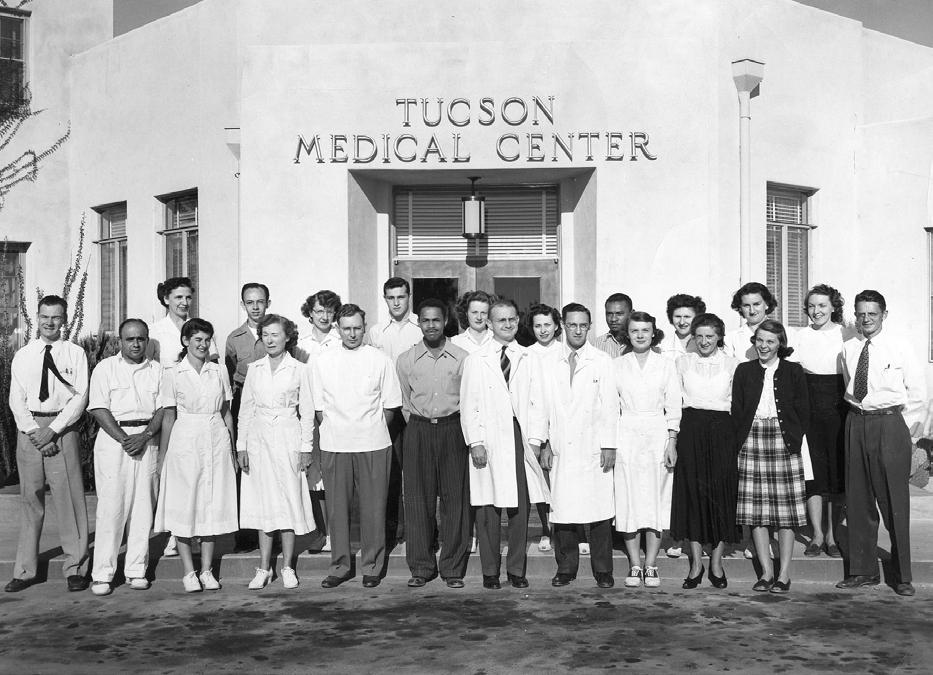
• Community came together to raise $250,000 to open Tucson Medical Center, additional $500,000 raised several years later to offset financial shortfalls
• Nov. 9, 1944 - First patient admitted
• Feb. 27, 1945 - First baby born
• Dec. 12, 1946 - First surgery performed
• 1949 - TMC Auxiliary formed—celebrating 75 years in 2024


• 1964 - Marshall Auditorium opened
• 1965 - TMC first Tucson hospital to qualify for Medicare
• 1966 - First employee Holiday Tea






• 2005 - Property at Houghton & Drexel purchased
• 2017 - Medical office building opened
• 2023 - Rincon Surgery Center opened
• 2024 - TMC Rincon opened April 4
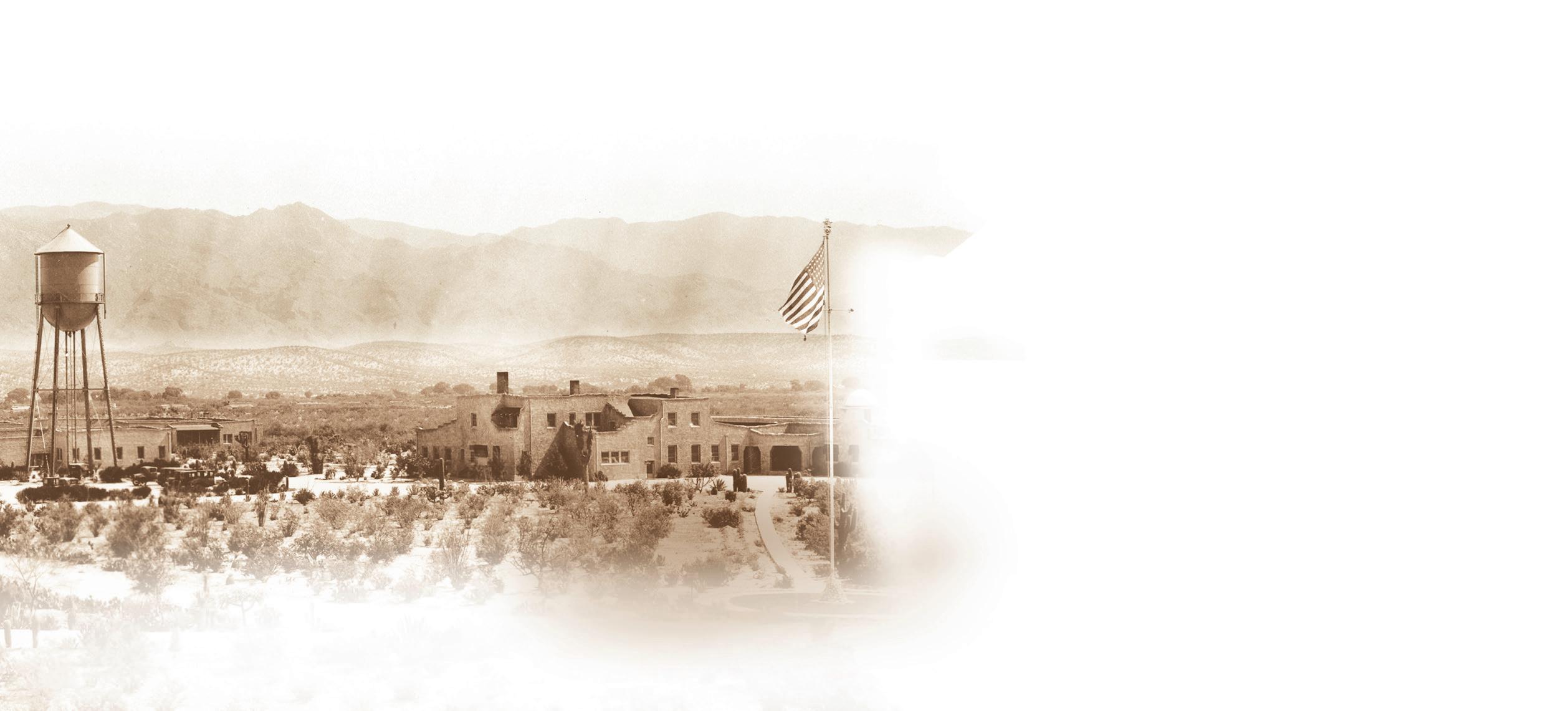
• 2015 - Southern Arizona Hospital Alliance founded
• 2018 - Benson Hospital joined TMC HealthCare
• 2021 - Northern Cochise Community Hospital joined TMC HealthCare

• 1985 - TMC Board of Trustees formed a system structure, calling it TMCare
• 1992 - TMCare became HealthPartners of Southern Arizona (HPSA), an integrated delivery system including TMC, a large physician group and an insurance company known as HealthPartners
• 1995 - HPSA and Samaritan Health announced plans to merge. HPSA board ultimately decided to remain local and independent. Samaritan later merged with St. Luke’s to form Banner Health
• 1998 - Focus returned to the TMC Grant and Craycroft campus and the name TMC HealthCare was adopted
• 2003 - El Dorado Hospital purchased by TMC HealthCare and closed in 2006, first floor transitioned into TMC Outpatient Services
• El Dorado Physician Network was part of the acquisition which has grown into TMCOne
• 2009-2015 - Re-imagining TMC Grant and Craycroft campus
• 2011 - TMC for Children renovation and expansion opened
• 2013 - Orthopaedic and Surgical Tower opened
• 2017 - TMC for Women opened
• 2022 – TMC HealthCare renamed TMC Health

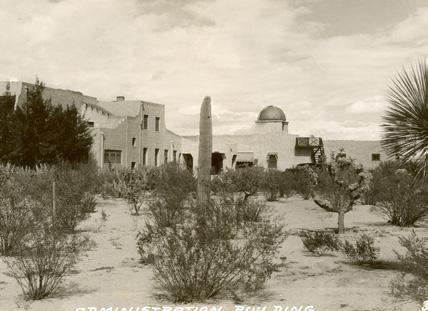






• Tucson’s desire for a community-focused hospital has defined our history
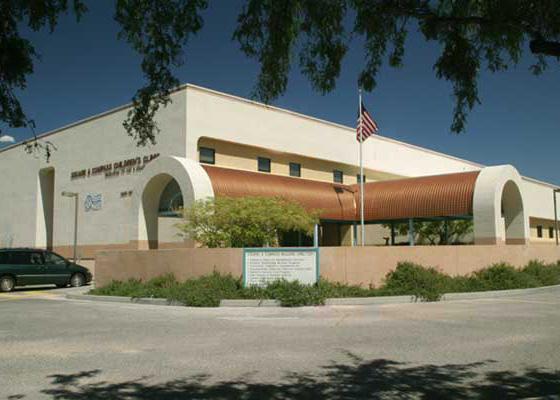



• Workforce shortages have challenged this nonprofit hospital throughout our history, and we have responded creatively and by growing stronger
• National and international factors have shaped our evolution (WWII, Medicare, COVID)
• The legacy and narrative of TMC has been written through big and small decisions made every day by ordinary people doing their best to serve their community

This Report to our Community highlights the profound and positive impact of people coming together to benefit our community health care system. The philanthropic support highlighted in these pages has provided needed funds to help fulfill Tucson Medical Center’s mission to provide exceptional health care with compassion. For this we are grateful.
The projects and initiatives range broadly and highlight the many ways that TMC serves Southern Arizona. This includes enhancements to our Emergency Department, creating a more robust cardiac program, helping children with their health needs, and even expanding our “four-legged employee” base.
Our 2023 gala, An Enchanted Forest, was our most successful yet with the proceeds dedicated to improving the Emergency Department. This project will expand the ED and increase bed capacity, creating a more efficient facility to better accommodate higher acuity patients. At some point in life, most families and individuals will need emergency care. With a population over a million people, Southern Arizona is home to just a handful of emergency departments—the largest and busiest being at TMC.
Support from the Iliana Maria Lopez CardioVascular Endowment funded the 4D ICE cardiac machine. The first of its kind in Southern Arizona, this innovative tool paves the way for enhanced cardiac imaging, procedural guidance and ultimately better patient outcomes in the ever-evolving field of structural heart. The positive impact of the generous commitment by the Lopez family allows for the most robust cardiology program in Tucson. Our interventional cardiology program is a point of pride, and this leading-edge resource will help us to continue to grow our capabilities in this area.
We also unveiled a substantial refreshing of our inpatient hospice unit, Peppi’s House. Each patient room, hallway and family room was updated entirely using gifts from the community. Since 1991, TMC Hospice has provided care to ensure those with life-limiting illnesses receive compassion, dignity and love either at home or as an inpatient, including the area’s only pediatric hospice unit.
We remain Tucson’s No. 1 birthing center with more than 5,000 babies born here each year supported by a Level III-B Newborn Intensive Care Unit. Our dedicated Pediatric Emergency Department and Pediatric ICU, along with the unique Pediatric Therapy program, support our dedication to providing the best pediatric care for children in our community. This care even extends to cochlear implant procedures for children with profound hearing loss. All of this rounds out an amazing pediatrics program, which is supported
through Children’s Miracle Network. A pledge made to the annual MIX Miracles Holiday Radiothon, or a gift made a dollar at a time, or even a “round up” at the cash register at one of our CMN partners provides pivotal support for children’s care in our region. We are grateful to our national and local CMN partners.
Lastly, a unique gift that keeps our patients, caregivers, many volunteers and visitors safe is the gift of the four-legged variety. In 2023, we received not one but two security dogs and unveiled a specially equipped vehicle to support our canine unit. Acey and Argos are welcome additions to our hospital.
We are truly thankful to you for your philanthropic support. Your giving helps TMC Health provide life-changing and, at times, lifesaving care to our community.
TMC Health Foundation Staff


There’s an Irish saying that comes to mind at times – “work is better than talk.” While I do love to talk, and I’m thankful for what I’ve learned in my conversations while chair of the Foundation board, I find it’s always good to remember that action and effort are more valuable that just talking about those things.
I will always remain committed to the mission of the TMC Foundation. The TMC Health story continues, with new chapters, new challenges and new heroes filling each page. The faces you see in the hallways may change, but the legacy of care always remains.
This organization’s inspiring history is one of incredible people, some who have part of the hospital named for them, and many who just did their work with dignity and compassion each day. I’ve been blessed by the opportunity to support the people doing the work in recent years, but finding opportunities to fund renovations, new initiatives and more.
There’s another Irish saying that applies here – “there is no strength without unity.” Whatever your role is, from fundraiser to food services, from bedside to boardroom, we all have a role to play in insuring that TMC Health remains a nonprofit and community operated, so that the very finest care is available to the Southern Arizonans who walk through the doors, so scholarships can be given to those looking to advance their career.
These halls are filled with amazing stories, connections that will last through time. My part, however small, is something I remain thankful for.
Donal Drayne
Board Trustee & Former Chair TMC Health Foundation


At the young age of 2, Logan Navidad began to pull on his ears in discomfort and had trouble verbalizing. He began to have constant ear infections, which led to congestion and hard-to-treat sinus troubles. When Logan turned 3, his parents, Samantha and Abraham, became concerned that his sounds and words weren’t improving. They decided to bring him to his pediatrician at Tucson Medical Center.
The team at TMC Audiology was able to determine that he was partially deaf in both ears, as well as having speech issues. The best course of treatment for Logan was to undergo surgeries to have tubes placed in his ears and his tonsils removed. Post-surgery, therapists in TMC Speech Therapy worked with Logan to enhance his speech and teach his parents new and exciting ways to help Logan grow and improve.
With the support of TMC for Children, Southern Arizona’s only Children’s Miracle Network Hospital, Logan received the foundational treatments in speech and audiology that allow him to succeed and excel in elementary school.
Despite these challenges, Logan, now 7, has remained a constant ray of positivity and optimism. When asked how he feels about the challenges he has faced growing up he said, “I hope one day everyone who has something like me knows they can be anything they want to be when they grow up.”
its CMN Champion!
CMN Champion
Each year, Children’s Miracle Network Hospitals and the TMC Health Foundation identify a CMN Champion in our local community to serve as the face for children treated at TMC for Children. This ambassador spends the year advocating for the charitable needs of children’s hospitals across the United States.
In addition to serving as the Tucson CMN Champion in 2023, Logan was also chosen to be one of 10 national-level champion children. This means that he represents not only TMC for Children, but all 170 Children’s Miracle Network Hospitals—a first for TMC.
Logan’s mom, Samantha, a courier at TMC, describes Logan as adorable, smart, articulate, precocious and a little mischievous. As part of the national campaign, Logan’s picture was featured on Cheerios boxes sold at CMN
national-partner Costco in stores across the country for the month of May. General Mills donated a portion of the proceeds to CMN. “It’s so cool,” Logan said, holding the Cheerios box.
CMN effort brings in $1.6 million
In 2023, corporate partners the MIX Miracles Radiothon, Hook-N-Slice Golf Tournament and individual donors donated more than $1.6 million in support of Children’s Miracle Network and TMC for Children.

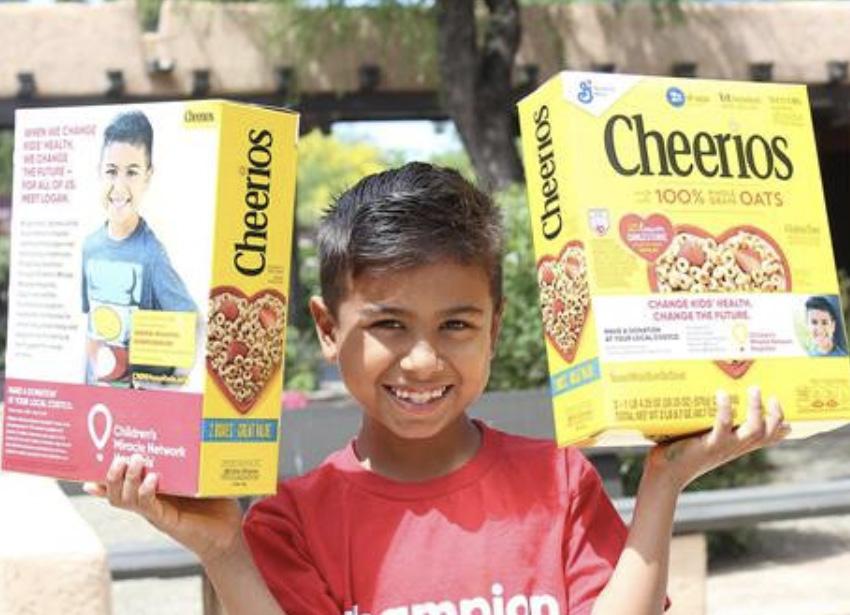

Cam Dyman is a TMC nurse who aims to return to patient care. “Working in Clinical Informatics is a great way to combine my clinical and technical skills, but I miss working directly with patients,” Dyman said. “I am passionate about mental health care, and higher education is the best pathway to achieve the knowledge and certifications I need to provide this meaningful care.”
Dyman is one of 30 TMC personnel who received support from the Judy Rich Scholarship Fund in 2023. “The scholarship has earned strong philanthropic support over the years,” said TMC Vice President and Chief Development Officer Jeffrey Lamie. “The TMC Health Foundation matches the donations because the effort is an important part of enhancing care and retaining talented TMC professionals.”
The Judy Rich Scholarship Fund for Clinical Excellence expanded in 2023 and supported significant educational and professional opportunities for TMC employees. In addition to being an exceptional executive, Rich is a dedicated nurse who has long recognized that advanced training and education elevate clinical expertise and advance continuous improvement in patient care.
The intent of the fund is to prioritize education at all levels of TMC, and open opportunities for employees to increase their potential in health care positions and advance their career paths.
With plans to complete a Master of Science in nursing and become a nurse practitioner, Dyman is simultaneously pursuing a nursing doctorate degree. Dyman’s experience is evidence of how the scholarship strengthens TMC’s ability to recruit, retain and grow a clinical workforce.
“It means so much to have this support from TMC,” Dyman said. “I really appreciate TMC’s mission, values and leadership.”


The Westin La Paloma turned into An Enchanted Forest in November as guests filled the ballroom for the TMC Health Foundation Gala presented by Hyatt Clinical Education. Guests were greeted by mystical décor, fairies and hundreds of friends and colleagues gathered to support Southern Arizona’s community health system.
The mood was light and the guests sparkled as though covered in fairy dust, but the true star of the evening was the amazing generosity in the room. More than $840,000 was raised to launch the TogethER: Reimagining Emergency Care Campaign to build a new emergency department experience for all Southern Arizonans.
Integrative Emergency Services, the physician group that staffs TMC’s emergency and anesthesia programs, kicked off the night’s paddle raise with a gift of $250,000. “Our community showed up in a big and beautiful way at this year’s Gala,” said John Levin, chairman of the TMC Health Foundation Board of Trustees. “We are grateful for the outpouring of support that we receive from people throughout the region.”
Nearly all families and community members in the greater Tucson area will need emergency care during their lifetime. The money raised at the Gala will reach far beyond the confines of the hospital walls as TMC continues its unwavering commitment to providing timely and accessible care to all residents of Tucson.






The TMC Emergency Department is a vital part of the community providing care to 100,000 patients last year, an average of more than 273 patients per day.
“In my role as co-director of TMC’s Emergency Department, I witness lifesaving and life-changing care provided by a skilled and dedicated medical team that I am proud to be part of,” said Dr. Jerald Moser. “On any given day we see and treat stroke and cardiac episodes, people injured in accidents, epileptic seizures, serious workplace injuries and countless other challenging medical emergencies.”
TMC is Southern Arizona’s busiest emergency department and the second busiest in Arizona. TMC is now ranked the 33rd busiest ED in the nation, and on any given day you or someone you live with could require emergency care.
Comprehensive Stroke Center. That day I was not only an emergency department physician, but I was also a son. I am grateful to say my father is walking and talking and enjoying life.”
Tucson and the surrounding region have grown, and so has the need for resources to support advanced emergency medical care. The ED’s original space, built in 1990, is struggling to keep up with the growing demand.
The space and the technology supporting it needs to evolve as the community it serves continues to grow. TMC has made the most of the space, adding beds in hallways and stretching existing resources, but significant change is needed to prepare for the future.
Construction began in April 2024 while fundraising continues.


In 2023, TMC Health initiated a $32 million capital campaign to expand and improve the TMC Emergency Department. The project will increase bed capacity, eliminate hallway beds, enhance efficiency, improve physician and staff retention, and expand to accommodate the increased needs of high-acuity patients.


A $750,000 endowment from Gary R. and Jill B.W. Sisson in 2023 will benefit the TMC Healing Art Program, established to help patients heal in surroundings that inspire, encourage and cheer.
“This incredible gift provides support for a vital program for years to come,” said TMC Health Foundation Chief Development Officer Jeffrey Lamie. “This program is a point of pride for our institution, our employees and the community as a whole, and I’m incredibly thankful that the Sissons have chosen to honor the Healing Art Program with their gift.”
Through the Healing Art Program, established in 2014, more than 1,000 pieces of visual art in the hallways of TMC and related campuses, and hundreds of hours of musical performances each year, have provided a refuge for both patients and hospital staff during often challenging circumstances.
In acknowledgement of their generosity, the Healing Art Program’s curator position will be renamed the Gary R. and Jill B.W. Sisson Endowed Curator, beginning with program founder and current curator, Lauren Rabb.
“I’m thankful for the opportunity to see the healing power of the arts at work at TMC,” Rabb said. “The generosity of the Sissons will help ensure these opportunities will continue in the future.”
“Gary and I are so pleased to support the Healing Art Program at Tucson Medical Center,” co-donor Jill B.W. Sisson remarked before she passed away in spring 2024. “We were flattered to be asked to name the curator’s position. This is the first thing we have put our name on. TMC has been here for us, and it is our pleasure to be able to give back.”
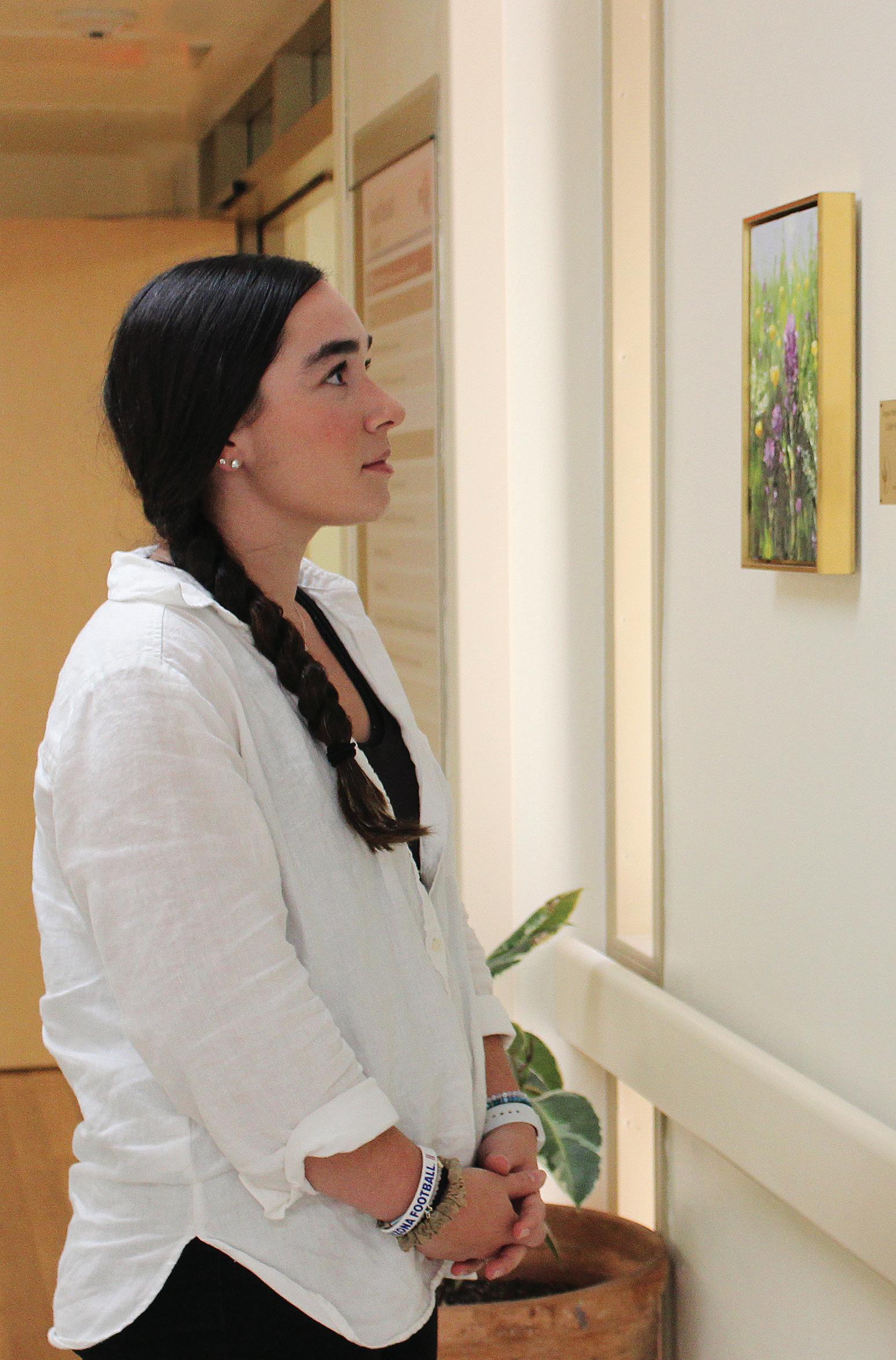

The Iliana Maria Lopez CardioVascular Endowment funded its first purchase at TMC: 4D ICE equipment. This technology has multiple applications and benefits, which will enhance cardiac interventional procedures and support improved patient outcomes.
In 2023, TMC proudly announced the Lopez family’s generous $5 million initiative.
“My family, like those of many Southern Arizonans, has been touched by cardiovascular illness,” said Humberto Lopez. “Contributing to the long-term success of this already-prominent program was a simple decision, especially understanding how many people in this community benefit from their lifesaving leading-edge treatments.”
What is 4D ICE?
ICE, or intracardiac echocardiography, uses a tiny ultrasound probe attached to a catheter, which is then inserted into various chambers of the heart through the femoral artery or vein. The advanced device creates highlydetailed images (3D) that provide greater detail and clarity than current technologies. The images are also created in real time (4D), which provides the most accurate images of the interior chambers and valves of the heart.
Why is 4D ICE so important?
The clear, well-defined and real-time images better guide cardiologists during interventional heart procedures, meaning cardiologists can act more efficiently with greater accuracy. This technology will also be used during many advanced interventional procedures that are performed dozens of times per month in the TMC Catheterization Lab.
Cardiac disease continues to be a top health concern for Pima County residents. To ensure area health professionals have the latest information on the treatment and interventions for cardiac and vascular disease, Pima Heart & Vascular and TMC Health host the CardioVascular Interventions Summit, a continuing education event for health care professionals from across the country. ‘The Leading Cardiovascular Research, Technique, and Technology Summit’ is the pinnacle of collaborative and innovative cardiovascular medicine held annually in Tucson.
“I was a first-time attendee at last year’s event, and I was so impressed with the quality of this continuing medical education opportunity—right here in Tucson,” said Josh Lee, M.D., TMC chief information officer. “It is a must-attend for any clinicians who are involved with cardiac care, and particularly for those with interest in interventional cardiology and structural heart procedures.”
The Summit provides a comprehensive update on the management of cardiovascular diseases lead by program directors Dr. Neil Gheewala, Dr. Thomas Waggoner and Dr. Gulshan Sethi. In 2024 it featured 37 world-class faculty and seven live case sessions from four major medical centers across the United States.
TMC’s support of this event shows our commitment to being on the forefront of cardiac care innovation. The Summit is an unparalleled opportunity to enhance knowledge, engage with experts, and stay at the forefront of technological and procedural advancements in the field through groundbreaking discussions, live case demonstrations and expert insights.



Since its opening, Peppi’s House has been a meaningful place to say farewell to loved ones. In 2022, an incredibly generous planned gift allowed us to plan important upgrades to the facility.
Thanks to this gift and several other generous donors, in 2023, Peppi’s House received a full renovation, including fresh paint, new furniture and freshening up of all 16 patient rooms, four family rooms and centralized nursing station. Inspirational art also adorns the walls in the rooms and the halls adding to the beauty and tranquility of such a significant place for so many in our community.
Peppi’s House cares for people in Tucson and Southern Arizona with lifelimiting illness after the patient, physician and family have decided that medical care to cure the underlying disease is no longer the best path. Hospice involves a team-oriented approach to expert medical care, pain management, and emotional and spiritual support that fits the patient’s endof-life needs and wishes.
At the center of hospice and palliative care is the belief that each of us has the right to die with dignity, and that our families should receive the support they need to allow us to do so.
Peppi’s House was built in 2007 with a major contribution from the Buehler Family Foundation to honor their late mother, known as Peppi. Peppi was a loving mother and grandmother. She was also a philanthropist whose lifetime
gift to build a welcoming and homelike hospice facility for adults and children showed how one person can dramatically touch the lives of so many others.
As we were working on the project the one thing her daughter Pam said was, “I want this building to be as inviting to people as my mother’s house always had been. I wanted everyone to feel welcome. My mom always made sure everyone felt welcome at her house. No matter who you were or how old you were, you were welcome.”
Today, everyone who visits Peppi’s House remarks on its warmth, beauty and fine design. There are relaxing living rooms for family and friends who visit and patios designed so patients in wheelchairs or beds can enjoy the sun and fresh air.
The beginning of Peppi’s House and its most recent renovation in 2023 are testaments to the incredible impact large gifts can make. These two gifts are now a standing memorial that allow so many people in our community to be with loved ones in their last moments in a beautiful, peaceful environment.
A legacy gift is a gift that reflects a person’s deepest desires and longings to “leave their mark,” make a lasting contribution and impact society and the world long after they are gone. These kinds of transformative gifts live on in perpetuity as they positively impact the lives of others for decades to come. What legacy might you want to leave?
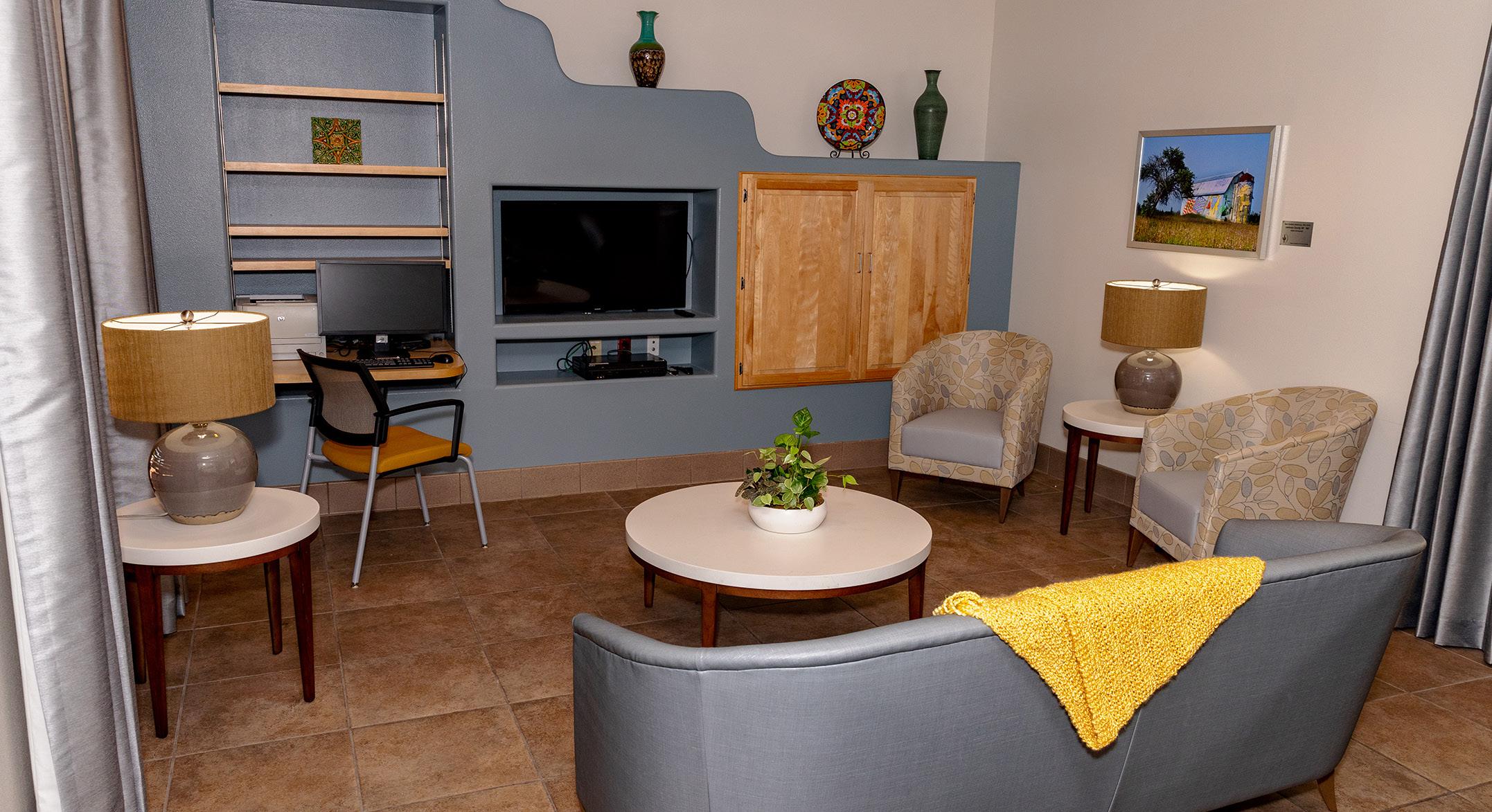



When Hercules, a brindle pit bull mix, saw Dr. Ann Pearson, veterinarian with Reata Veterinary Hospital, he was overheated from the blazing sun, but otherwise in good health. Dr. Pearson cooled the puppy down with water and a cooling cloth while his person petted him and loved on him before he was given his vaccinations.
Dr. Pearson was part of an outreach effort to provide veterinary services for animals living at a homeless encampment along the Golf Links corridor. The outreach was coordinated by TC-3 (Tucson Collaborative Community Care). Working together TMC and Tucson Fire Department connect people with resources they need so they do not have to rely on the emergency system for all of their health needs.
During community interactions, it was found that many people will put their own medical needs on hold so they can care for their pets. Thanks to a grant from PetSmart Charities, TC-3 and its community partners are able to help.
“Wednesday’s outreach is a good example of the impact this grant can have on people and animals who need it most,” said Maya Luria, director of community partnerships & outreach for TMC. “In addition to vaccinations and checkups from Reata Veterinary Hospital, TC-3 was able to provide dog food, treats, leashes, collars, booties and water bowls for the dogs. We are so thankful to PetSmart Charities for enabling us to reach out to people in such a meaningful way.”
Dr. Pearson and her staff provided check-ups and vaccinations for 14 dogs and one cat. This was all made possible by the PetSmart grant.
TC-3 also provided snacks, water, Gatorade, Narcan, socks, hygiene supplies and first aid supplies to individuals at the camp.
Additionally, representatives from TC-3, Tucson Medical Center, Tucson Fire, Housing & Community Development, Housing First, Encampment Protocol, Environmental General Services Department, Tucson Police CORE Team, Tucson Police Operations Division Midtown, Community Bridges and MARC (Multi-Agency Resource Coordinator) participated in the outreach.
Together, this group picked up 10 tons of trash, 200 shopping carts and engaged with 58 individuals to connect them with resources they need to get food, housing, medical care and more.
“Overall it was a big success,” said Mari Vasquez, multi-agency resource coordinator. “This area is all hands on deck and Wednesday was an amazing display of collaboration.”

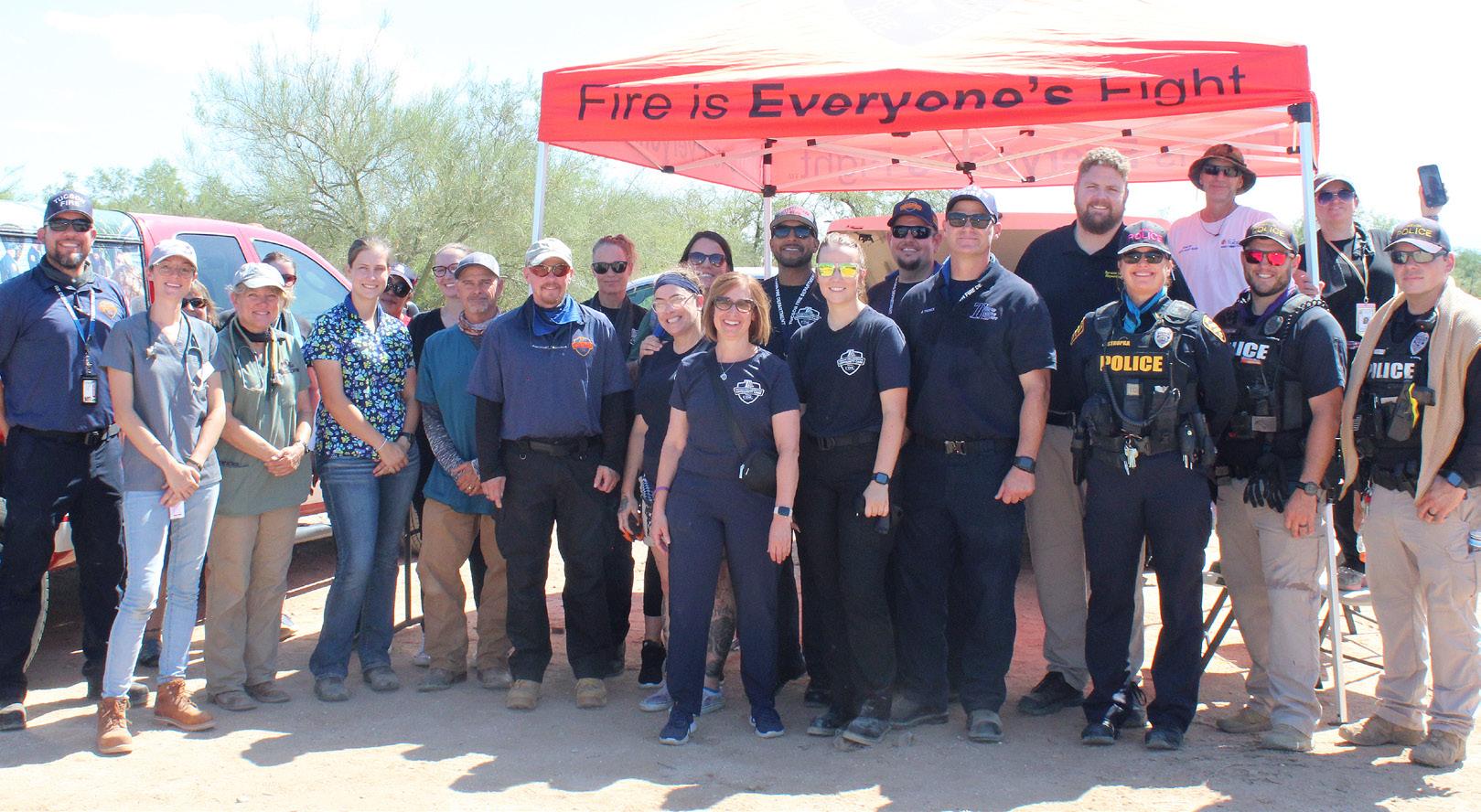


The TMC Auxiliary celebrates 75 years of volunteer compassion, philanthropy and support that have become a cornerstone of Tucson Medical Center.
Founded by physician spouses in the late 1940s, the TMC Auxiliary was created to assist hospital staff and comfort patients.
What is an Auxiliary? This is a traditional term for a hospital volunteer program. TMC has chosen to keep this name to honor the thousands of volunteers who have positively impacted patient care throughout the decades.
Many Tucsonans remember the TMC Auxiliary Candy Striper program that spanned from the 1950s through the 1980s. Teenage students or “candy stripers” donned a unique uniform to help patients with comfort needs. Sometimes they even serenaded patients in song.
As time passed, the Auxiliary found more ways to assist and opened the TMC Gift Shop. This 1,500-square-foot space sells commonly needed items to patients and visitors and provides clinical staff a brief but fun respite.
The Teal Saguaro, the Auxiliary’s resale boutique, offers gently used clothing, toys, books, DVDs, kitchenware, furniture and more. Located off campus at 2260 N. Rosemont Blvd., the store is operated entirely by volunteers.
Together, the two stores earn more than $100,000 annually, which is donated back to TMC Health with proceeds distributed through the TMC Health Foundation.
Although the Auxiliary started with just a few doctors’ wives, it has expanded over the years to a diverse group of more than 400 volunteers serving in nearly 50 departments of the hospital. Volunteers assist in the NICU, inpatient units, surgery lobbies, at entrances and in pet therapy teams, just to name a few.
Anyone who has been to TMC has likely seen TMC volunteers in their trademark teal shirts, jackets and smocks, assisting clinical staff, patients and visitors.
While many things have changed at the Auxiliary over the decades, the sincere commitment to helping others in our community has not only remained but grown stronger.
“There are so many reasons we are grateful for TMC volunteers,” said Mimi Coomler, TMC president and CEO. “We are most thankful for the compassion they show every patient, visitor and employee. A sincere ‘Thank You!’ to every volunteer for all they do for TMC and the communities we serve.”



TMC Health reports nearly $60.9 million in community benefit and charity care for 2023, or about 6.7% of net revenue, an increase from 6.3% in 2022.
Outreach & Education: This figure includes community benefit programs and activities that provide treatment or promote health and healing as a response to identified community needs. These programs and activities help improve access to health care services, enhance the health of the community and advance medical knowledge.
Hospital Assessment: Since 2014, Arizona hospitals have paid an assessment to the state of Arizona to help fund the cost of expanding AHCCCS services to low-income residents. In 2023, the assessment covered 602,000 residents, and TMC Health’s portion of the hospital assessment was $23.8 million.
Health Care Investment Fund (HCIF): In March 2020, HB 2668 was passed which established a second assessment effective Oct. 1, 2020. Monies from this assessment are deposited into the Health Care Investment Fund to 1) make directed payments to hospitals pursuant to 42 CFR § 438.6(c) to persons eligible for Title XIX services, 2) increase base reimbursement for services reimbursed under the dental fee schedule and physician fee schedule, and 3) to pay for the non-federal share of the costs for AHCCCS expenses to administer this program, not to exceed one percent of the total assessment monies collected.
Uncompensated Cost of Care for Charity Care, Bad Debt & Discounts for the Uninsured: Charity care is free or discounted health services provided to people who can demonstrate that they do not have the means to pay the full cost of care and who meet the organization’s financial-assistance policy criteria.
Bad debt consists of services for which the hospital anticipated but did not receive payment. Recognizing that self-pay patients who do not have health insurance are not in the same position as insurance companies to negotiate reduced rates, TMC Health discounts these patients’ bills by 69%; and, depending on a patient’s income, other discounts may apply as part of TMC Health’s Community Care program.
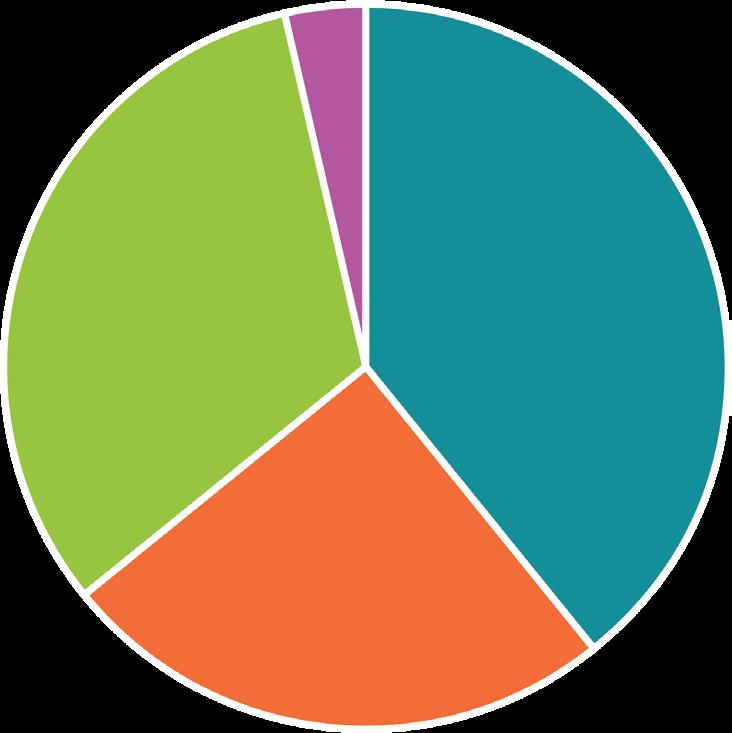
Percentage of net revenue: 6.7%

For purposes of community benefit reporting, charity care, bad debt and uninsured discounts are reported in terms of costs, not charges. For more information about TMC Health’s charity care policy, visit: tmcaz.com/community-care 2023 Hospital Data and Volumes

9,014 3,622 568 33,260 83,711





